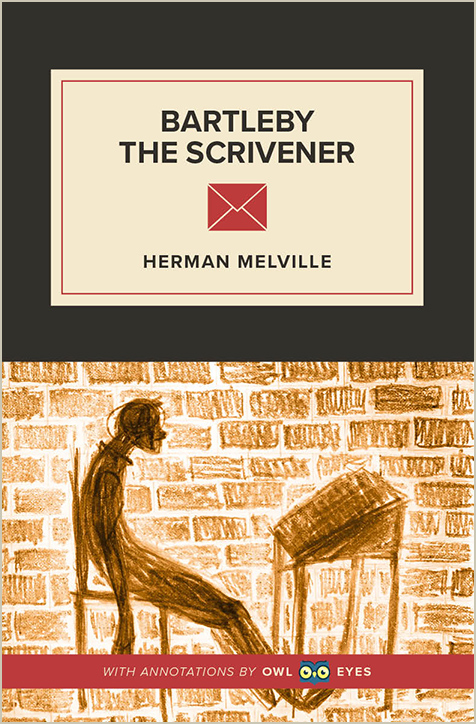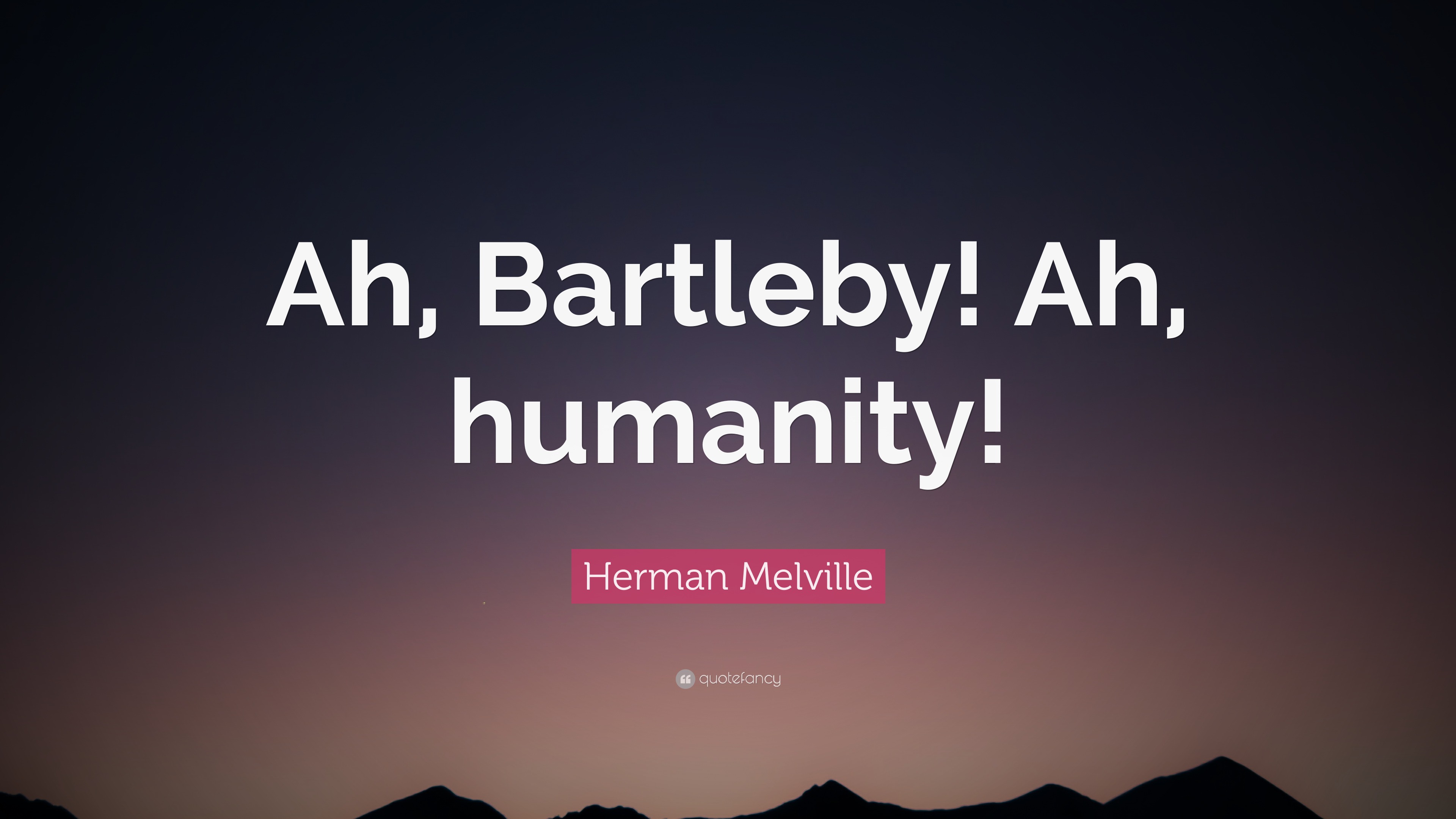

Also, it’s ironic that Bartleby uses almost the same amount of passiveness as his boss the lawyer, and it is equally as unrelenting and frustrating as Bartleby’s. Bartleby, when he first started working, was a very skilled and gifted writer said by the narrator for the first two days but then out of nowhere he just stopped. All in all, Bartleby is an enigma but with further examination it is evident he is a man who wants to be left alone and not be bothered by life.īartleby’s non-compliant actions along with his repetitive phrase, “I would prefer not to” are examples of irony in the text.

One example of this was when the Lawyer asked Bartleby to summon Nippers, another worker of the Lawyer’s on page 14 as it states, “Go to the next room, and tell Nippers to come to me’ ?I prefer not to,’ he respectfully and slowly said”. This also reveals his strong amount of passive resistance that allows him to so easily refuse to do anything. After his first two days of work where he did nothing but good he transitions to refuse direct orders simply by responding “I would prefer not to”. Later in the text his mental strength is revealed, and his level of aberration increases. This description shows that the narrator began to take notice of his strange emotional coldness and inhuman remoteness of Bartleby. Also, in the text it is said that Bartleby has a “lean face and tranquil gray eyes that show absolutely no agitation” (Melville 9). This represents what the narrator first sees in the enigma that is Bartleby. To begin, In the text Bartleby is described as “pallidly neat, pitiably respectable, incurably forlorn! It was Bartleby” (Melville 8). ““Bartleby, the Scrivener” by Herman Melville”įirst off, during the text the author, Herman Melville, decides to use an abundant amount of direct characterization.


 0 kommentar(er)
0 kommentar(er)
